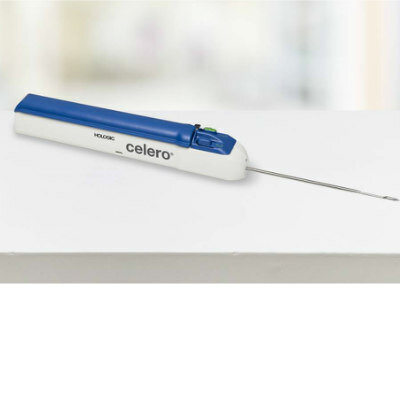Innovative Disposable Device to Revolutionize Colonoscopy Procedures
|
By HospiMedica International staff writers Posted on 17 Dec 2024 |
_JPG.jpg)
During colonoscopy, escaping air and CO₂ often cause the colon to collapse, which can prolong procedures and heighten both patient risks and costs. While maintaining adequate colonic distension is essential for improving Adenoma Detection Rates (ADR), effective methods to prevent this issue have been lacking. The two most common techniques—manual buttock pressure and patient repositioning—are often ineffective, physically demanding, and distract the endoscopy and anesthesia teams from their primary tasks, increasing the risk of staff injury and patient aspiration. Other methods, like left colon water instillation, are impractical, messy, and require technical skill, making them expensive. Now, a novel disposable device has been designed to prevent air and CO₂ escape during colonoscopy, helping to maintain colonic distension and improve procedure efficiency.
The Air Assist, a disposable medical-grade silicone device from Gastro Concepts (Albuquerque, NM, USA), has been designed for simplicity and effectiveness. It creates a reversible seal between the colonoscope and the anus or stoma, minimizing air escape. The device can be easily maneuvered by the endoscopist or technician, providing immediate and reversible colonic distention as needed. This innovation improves visibility during both diagnostic and therapeutic colonoscopies. The device allows for on-demand control of colonic distention, making it convenient and effective for use by the medical team.
The Air Assist is a single-use device, that ensures both safety and convenience and aims to revolutionize colonoscopy by enhancing procedure efficiency and reducing frustration. Developed by a practicing gastroenterologist with extensive endoscopic experience, this simple, safe solution is expected to improve the colonoscopy process for both the endoscopist and supporting staff. Gastro Concepts has received U.S. Food and Drug Administration (FDA) 510(k) clearance for the Air Assist device, marking a significant advancement in colonoscopy technology.
"We are thrilled to bring this innovative device to the market," said Dr. Jason Slate, Chief Medical Officer of Gastro Concepts. "The Air Assist will not only simplify the procedure but also enhance patient outcomes by providing superior visibility during both diagnostic and therapeutic colonoscopy."
Related Links:
Gastro Concepts
Latest Surgical Techniques News
- New Transcatheter Valve Found Safe and Effective for Treating Aortic Regurgitation
- Minimally Invasive Valve Repair Reduces Hospitalizations in Severe Tricuspid Regurgitation Patients
- Tiny Robotic Tools Powered by Magnetic Fields to Enable Minimally Invasive Brain Surgery
- Magnetic Tweezers Make Robotic Surgery Safer and More Precise
- AI-Powered Surgical Planning Tool Improves Pre-Op Planning
- Novel Sensing System Restores Missing Sense of Touch in Minimally Invasive Surgery
- Headset-Based AR Navigation System Improves EVD Placement
- Higher Electrode Density Improves Epilepsy Surgery by Pinpointing Where Seizures Begin
- Open-Source Tool Optimizes Placement of Visual Brain Implants
- Easy-To-Apply Gel Could Prevent Formation of Post-Surgical Abdominal Adhesions
- Groundbreaking Leadless Pacemaker to Prevent Invasive Surgeries for Children
- Spectroscopy Technique Improves Surgery for Pediatric Epilepsy Patients
- Bioengineered Arteries Show Promise for Cardiovascular Surgery
- Online Tool Guides Surgical Decisions for Gallbladder Cancer
- Innovative Technology Enables Rapid Life-Saving Surgical Leak Detection
- First-Of-Its-Kind Bioresorbable Implant to Help Children with Rare Respiratory Disease
Channels
Critical Care
view channel
Mass Manufactured Nanoparticles to Deliver Cancer Drugs Directly to Tumors
Polymer-coated nanoparticles loaded with therapeutic drugs hold significant potential for treating cancers, including ovarian cancer. These particles can be precisely directed to tumors, delivering their... Read more
World’s Smallest Pacemaker Fits Inside Syringe Tip
After heart surgery, many patients require temporary pacemakers either to regulate the heart rate while waiting for a permanent pacemaker or to support normal heart rhythm during recovery.... Read more
AI-Powered, Internet-Connected Medical Devices to Revolutionize Healthcare, Finds Study
A new study suggests that artificial intelligence (AI)-powered, internet-connected medical devices have the potential to transform healthcare by enabling earlier detection of diseases, real-time patient... Read morePatient Care
view channel
Portable Biosensor Platform to Reduce Hospital-Acquired Infections
Approximately 4 million patients in the European Union acquire healthcare-associated infections (HAIs) or nosocomial infections each year, with around 37,000 deaths directly resulting from these infections,... Read moreFirst-Of-Its-Kind Portable Germicidal Light Technology Disinfects High-Touch Clinical Surfaces in Seconds
Reducing healthcare-acquired infections (HAIs) remains a pressing issue within global healthcare systems. In the United States alone, 1.7 million patients contract HAIs annually, leading to approximately... Read more
Surgical Capacity Optimization Solution Helps Hospitals Boost OR Utilization
An innovative solution has the capability to transform surgical capacity utilization by targeting the root cause of surgical block time inefficiencies. Fujitsu Limited’s (Tokyo, Japan) Surgical Capacity... Read more
Game-Changing Innovation in Surgical Instrument Sterilization Significantly Improves OR Throughput
A groundbreaking innovation enables hospitals to significantly improve instrument processing time and throughput in operating rooms (ORs) and sterile processing departments. Turbett Surgical, Inc.... Read moreHealth IT
view channel
Printable Molecule-Selective Nanoparticles Enable Mass Production of Wearable Biosensors
The future of medicine is likely to focus on the personalization of healthcare—understanding exactly what an individual requires and delivering the appropriate combination of nutrients, metabolites, and... Read more
Smartwatches Could Detect Congestive Heart Failure
Diagnosing congestive heart failure (CHF) typically requires expensive and time-consuming imaging techniques like echocardiography, also known as cardiac ultrasound. Previously, detecting CHF by analyzing... Read morePoint of Care
view channel
Handheld, Sound-Based Diagnostic System Delivers Bedside Blood Test Results in An Hour
Patients who go to a doctor for a blood test often have to contend with a needle and syringe, followed by a long wait—sometimes hours or even days—for lab results. Scientists have been working hard to... Read moreBusiness
view channel
Expanded Collaboration to Transform OR Technology Through AI and Automation
The expansion of an existing collaboration between three leading companies aims to develop artificial intelligence (AI)-driven solutions for smart operating rooms with sophisticated monitoring and automation.... Read more

















